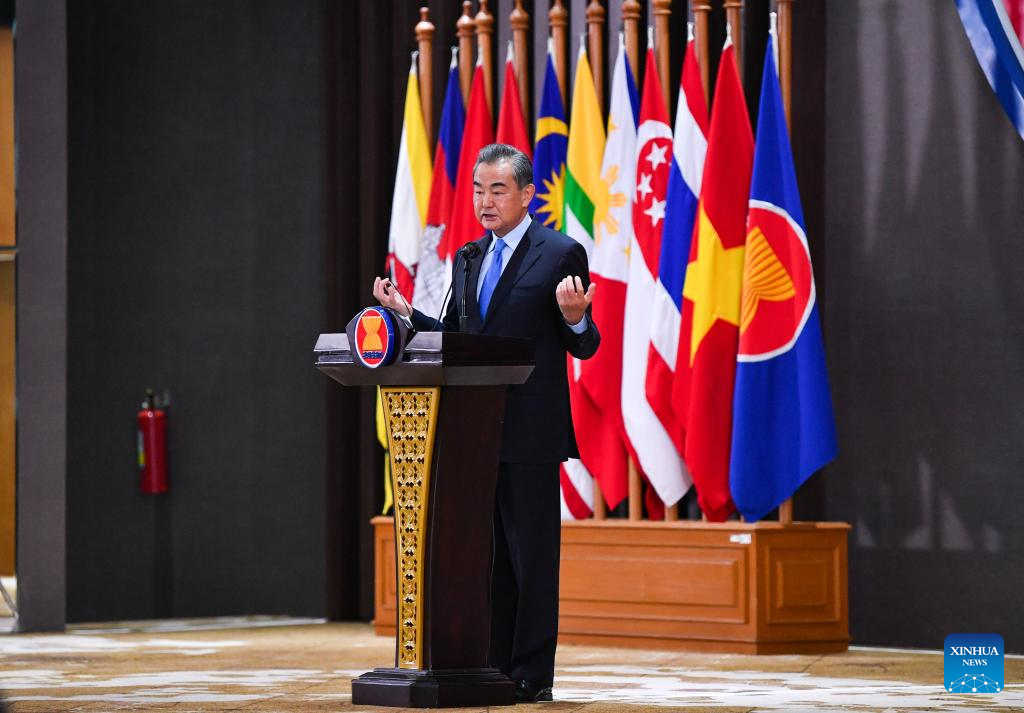
Chinese State Councilor and Foreign Minister Wang Yi makes a policy speech with Q&A at the ASEAN Secretariat in Jakarta, Indonesia, on July 11, 2022. (Xinhua/Xu Qin)
JAKARTA, July 11 (Xinhua) -- Chinese State Councilor and Foreign Minister Wang Yi said on Monday that China and the United States should engage in healthy interactions in Asia-Pacific.
Wang made the remarks when asked about the attempt by the United States and others to strengthen and expand their presence and influence in the region as he made a policy speech with Q&A at the ASEAN Secretariat.
Wang said that China has always been open to other nations' participation in Asia-Pacific affairs, adding that the key is whether their actions are conducive to maintaining regional peace and stability, or trying to instigate tensions and confrontation; conducive to promoting regional development and revitalization, or seeking to decouple and break connections; conducive to enhancing regional unity and cooperation, or trying to have their own way or even create divisions.
He said it is believed that people in all countries in the region will have their own judgement, and history will make a fair evaluation on this.
Wang said when he met with U.S. Secretary of State Antony Blinken in Bali the other day, he suggested that China and the United States explore establishing rules for healthy interactions between the two sides in Asia-Pacific in order to practice open regionalism.
The core element of the rules is to support ASEAN's central position and maintain the existing regional cooperation framework; to respect the legitimate rights and interests of China and the United States in Asia-Pacific, and do not take hostility or containing the other party as purpose; to play the role of a responsible major country, promote regional stability and development, and provide more public goods for all countries, he said.
Wang stressed that there is no greater good than for China and the United States to realize healthy interactions in the region, which will not only help to increase the positive expectations for China-U.S. ties, but also meet the general expectations of regional countries.
It remains to be seen how the U.S. side will respond, said Wang, adding that this will also test whether the United States can let go of its hegemonic mentality, overcome the Cold War mentality, abandon the zero-sum logic, and truly play a constructive role in peace and prosperity in the Asia-Pacific region. ■



